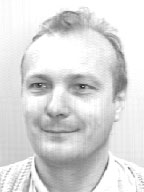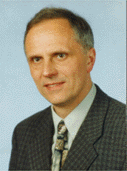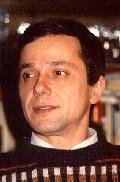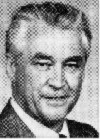Tutorials
Extranets: Concepts, Standards and Cost Issues
Algirdas Pakstas, University of Sunderland, UK
Abstract: This tutorial is devoted to the new emerging area of the
Internet use, namely, "extranets". This is often referred as a "third
wave" of the universal Internet. Definitions and examples of extranet
are given. Extranets are compared with better known intergroupware and the
concepts of Communications, Collaboration, and Coordination are illustrated.
Notion of multi-extranet is introduced as a special case typically found in
the Science Park (SP) environments. Three types of the organizations using
facilities of the SP and having different relationships with its multi-extranet
are distinguished: (a) "normal" firms which will have their own Intranets
and access to the Internet either on their own or via SP facilities; (b) "small"
firms, which will obtain access to the Internet via SP facilities and with
the only Intranet, which will be actually extranet; (c) "large" firms which,
perhaps, will not bother to connect to the SP facilities at all. Open application
standards are discussed and example of suite of standards supported by consortium
established by the Netscape Communications is briefly presented. Roles of
network management and security issues are outlined as crucial for the success
of the electronic commerce. Existing experience of running Intranets is discussed
and accepted as applicable for extranets and criteria for choosing planning
strategy for building of extranets are suggested. Based on the existing experience
the "top 5" problems have been identified such as Internal Information
Exchange, Discussions, Line-of-business Applications, Collaborations and Link
to Partners. Typical cost items are identified and cost models are discussed
for the cases such cost of running Web-sites of various complexity, access
expenses for mobile users/workers (via mobile telephones and ISDN connections)
as well as losses caused by the downtime. Typical two phases for building
of extranet are suggested: (I) is focusing on the applications and standards
which will help to solve mentioned "top 5" problems, and (II) is
devoted to future development of the extranet and "flourishing" of the links
with the customers as well as electronic commerce facilities.

Turbo Codes: A tutorial survey from theoretical understanding to applications
Sergio Benedetto, Polytechnic of Turin, Italy
Abstract: The tutorial will present turbo codes and other form
of concatenated codes with interleavers starting from their first presentation
(ICC '93), passing through the first successful attempts to explain their
exceptionally good performance, and arriving to a few guidelines for the code
design. The last part of the talk will deal with applications, and, in particular,
the new CCSDS telemetry channel coding standard, and the UMTS standard.
New Generation Optical IP Networks
Andrzej Jajszczyk, University of Mining and Metallurgy , Poland
Abstract: The tutorial addresses the IP over WDM networking technology
supporting multiple services. The tutorial will provide a comprehensive overview
of various alternatives for carrying IP traffic over WDM or DWDM networks,
including IP over SONET/SDH over WDM and IP over WDM. Several encapsulation
and framing approaches using PPP, HDLC, SDL, and Gigabit Ethernet will be
discussed. Methods enabling IP to serve as a multiprotocol platform will be
presented including such protocols as IntServ, DiffServ, and MPLS. Role of
the ATM layer will be discussed, evaluated and compared with that of multiprotocol
IP. Selected practical experiences with optical IP networks will be presented.
Research emphasis is on advanced software technologies for development of telecommunication networks, as used in switches, for signaling and in network management, with a focus on object and component technology and formal definition techniques. Besides the academic involvement at the university, Dr. Luderer has been teaching short courses since 1992 on high-speed networks and telecommunication software architecture in various countries. From 1965 to 1989, Dr. Luderer was with AT&T Bell Labs, at last directing research on next generation switch architectures, based on fast packet switching technology on the hardware side and object-oriented design technology on the software side, resulting in some of the earliest demonstration networks for multimedia communication. Dr. Luderer holds Diplomingenieur (M.S) and Dr.-Ing. (Ph.D) degrees in Electrical Engineering from the Technical University of Braunschweig, Germany. He holds two patents. While at Bell Labs, he taught at Stevens Institute of Technology in Hoboken, NJ, and at Princeton University. He is member of ACM, IEEE, IEEE Computer and Communication Societies.

Software as Intellectual Property - a Technologist's View
Gottfried W. R. Luderer, Arizona State University, USA
Abstract: In this half-day seminar, we will look at the history of
software evolution from an intellectual property perspective. How are people
who generate software being rewarded? We are not taking a legalistic viewpoint
but are rather more interested in the economic aspects, as seen from the point
of view of a technologist with interest in marketing. This will eventually
lead us from history to some speculations about the future. Milestones to
be discussed are the initial bundling of software with hardware, the struggle
for the viability of software patents, the role of the Unix T operating system,
initial free software like Gnu, leading to Linux as the currently most prominent
exponent. Other aspects are the open source movement, the role of standards
and the struggle to control them, and the recent illicit music copying using
the Napster program. How could the network evolve to help or hinder some of
the recent occurrences, and what are the likely and desirable characteristics
of network features to foster a healthy evolution of the software field?
WTFC Applications in Integrated Networks
Julije Ozegovic, University of Split, Croatia
Abstract: To integrate voice and data traffic in packet switching networks,
the problems of admission control, resource reservation, scheduling, flow
control and flow conformance control are to be solved. WTFC (Window-Time space
Flow Control) is recently proposed technology for efficient end-to-end packet
rate and window regulation. WTFC uses deterministic model of network response
with finite number of packets, which defines the Window-Time plane. Current
window and round trip time measurements are used to calculate optimal packet
rate and window. WTFC keeps the network at the working point of on average
empty packet queues, thus being prospective in the area of voice and data
integration. WTFC can be used to solve several common problems: data flow
regulation in presence of data and persistent (voice) traffic, flow conformance
control, voice coding mode and rate selection, and customer admission control.
In this tutorial, the overview of the WTFC theory is continued with WTFC applications
in voice-data integration field. Simulation experiment traces are shown and
analyzed.


